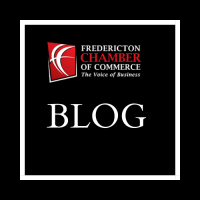News
2018-11-23 - Let's Get To Work
The six weeks since the provincial election in New Brunswick have been marked by uncertainty,confusion, political maneuvering and division. Now that we have clarity regarding who will be leading the province, we all have to leave the past in the past and focus on the present and especially the future – this means MLAs, voters, business – everyone.
We have serious problems in New Brunswick and none of those have improved while we’ve been figuring out who’s in charge. At the heart of everything is the economy. Economic growth is what allows government to provide the services that New Brunswickers need – it creates jobs, raises wages, opens new businesses, puts cranes on the skyline, builds parks, paves roads and yes – even pays taxes. The government only has so much influence over the economy – but it is imperative that governments at all levels control what they can control in this regard – favourable business conditions, pro-development policies and fiscal restraint. If we can’t count on our government to do these basic things, we are in serious trouble and we’ll get what we always gotten.
We can see where the old way of doing things has gotten us by looking at our people – over the next ten years, roughly 110,000 New Brunswickers will permanently leave the workforce, primarily due to retirements. Meanwhile, our public school system will graduate roughly 74,000 students over the same period and we already know -many of them will leave. How are we going to fill that gap? Of course we all want to create opportunities for ex-patriots to come back home – but how likely is that going to be enough, given how little has improved in New Brunswick since they left? Across Canada, 21.9% of all residents were born outside of the country in contrast with 4.6% in New Brunswick. Meanwhile, Don Mills of Corporate Research Associates tells us that two-thirds of New Brunswickers think our immigration levels should stay the same or be decreased. As employers and governments we need to make a concerted effort to change that narrative and international students, for example, should be a particular focus due to the ease with which they can enter the labour force.
Exacerbating the situation, New Brunswick’s population is one of the oldest of all provinces in Canada. In 2017, the median age of the New Brunswick population was 45.3 years, well above the Canadian median of 40.6 years. It should not be a surprise then, that the greatest employment growth in NB was seen in the healthcare and social assistance program administration (+20.7%) and general public administration (+10.4%). On the flip side, natural resources (-19.8%), utilities (-18.6%) and information, culture and recreation (-17.6%) sectors saw the greatest relative decreases in employment. These three sectors are major economic drivers in other parts of the country.
It would, of course, be quite correct to point out that immigration won’t be enough to close that gap either, especially at our current retention rates. The numbers tell us that newcomers – includinginternational students – want to stay, but are mostly leaving the province for the same reasons thatpeople born here are – better economic opportunities elsewhere. And that’s what we need in NewBrunswick. Economic growth creates jobs, improves public services and enhances quality of life – that’swhy our organizational vision is Stronger Community Through Business Prosperity and that’s why wecollaborated with Le Conseil économique du Nouveau-Brunswick, the Chamber of Commerce forGreater Moncton, the Saint John Region Chamber of Commerce, the New Brunswick Business Council and the Atlantic Chamber of Commerce to produce the We Choose Growth platform, which calls on government to focus on five key areas:
Private Sector Driven Economy
- Accept the recommendations of the WorkSafeNB Task Force Report and act upon them in thefirst sitting of the Fall legislature;
- Create a competitive environment for business by adopting APEC’s recommendation for aPan-Atlantic Regulatory Framework and develop an Atlantic Canadian Roadmap for the next 10years to harmonize or mutually recognize regulations across the region.
Responsible Natural Resource Development
- Identify current, emerging and potential energy sectors with growth potential and include asobjectives in the province’s growth plan
- Within one year define a regulatory review process that aligns governmental andinter-departmental requirements to create efficiencies and provide predictable, timely andreliable outcomes for industry.
Export Focused Economy
- Continue to assist New Brunswick companies diversify into export markets and create in-marketsupport resources in key export markets;
- Encourage expansion of value-add products and services to increase the value of exports to thelocal economy with incentives such as investment tax credits for exporting companies.
Labour Force Development
- Provide international students with residency status and remove the work experiencerequirement to increase the ability to attract and retain international students;
- Grant post-graduate work permits to international students attending private career colleges toincrease attraction and retention to grow our workforce and expand business.
Responsible Fiscal Management
- Balance the provincial budget by 2019 and release a four-year comprehensive debt and deficit management strategy with clear, transparent timelines and metrics;
- Conduct a comprehensive tax review with the objectives of improving fairness, reducing taxesand costs of operating a business in New Brunswick.
This isn’t an easy list, but we don’t have easy problems. If we’re serious about New Brunswick being the best it can be. The business community is here to be a real partner with government – let’s roll up our sleeves and get to work – together.
Krista Ross is CEO of the Fredericton Chamber of Commerce, a nationally accredited organization with nearly 1,000 members, is an active business organization engaged in policy development and advocacy that affects the competitiveness of our members and the Canadian business environment. The Chamber’s vision is ‘Stronger Community Through Business Prosperity’
-
Morgan Peters Policy & Research Manager
- November 23, 2018
- (506) 451-9742
- Send Email



